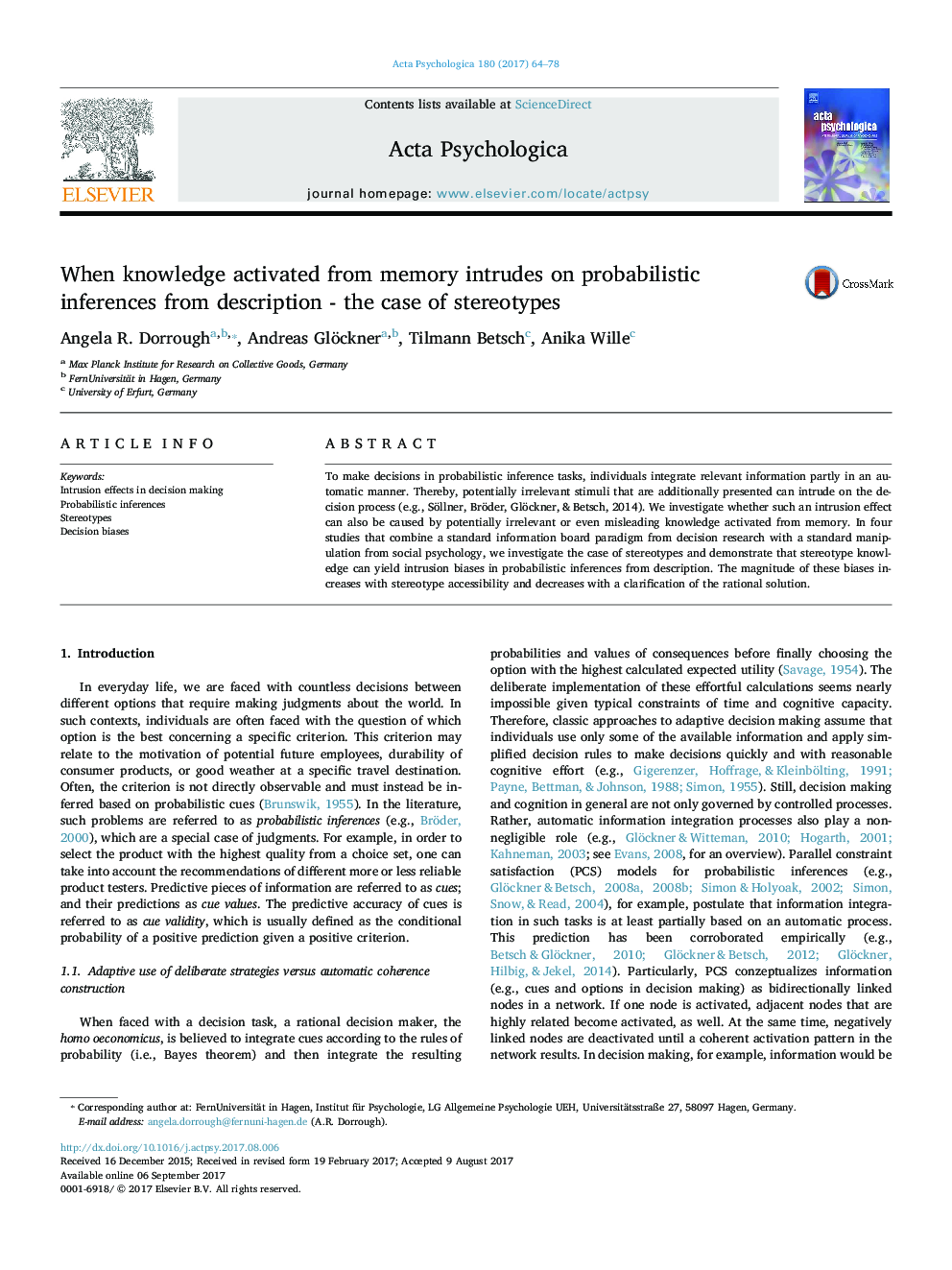| Article ID | Journal | Published Year | Pages | File Type |
|---|---|---|---|---|
| 5040183 | Acta Psychologica | 2017 | 15 Pages |
â¢Knowledge activated from memory intrudes on probabilistic inferences.â¢The intrusion effect is enhanced by increasing the accessibility of the knowledge.â¢The intrusion effect decreases with a clarification of the rational solution.
To make decisions in probabilistic inference tasks, individuals integrate relevant information partly in an automatic manner. Thereby, potentially irrelevant stimuli that are additionally presented can intrude on the decision process (e.g., Söllner, Bröder, Glöckner, & Betsch, 2014). We investigate whether such an intrusion effect can also be caused by potentially irrelevant or even misleading knowledge activated from memory. In four studies that combine a standard information board paradigm from decision research with a standard manipulation from social psychology, we investigate the case of stereotypes and demonstrate that stereotype knowledge can yield intrusion biases in probabilistic inferences from description. The magnitude of these biases increases with stereotype accessibility and decreases with a clarification of the rational solution.
